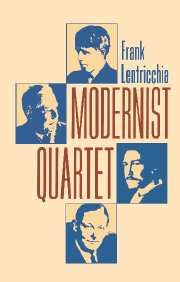Summary
What is the fate of the artist in modern society and culture? The role of art in a world shaped by the economics and ethos of the commodity? Books about modernist literature obsessively raise and fret over those familiar questions because the writers themselves did so. And upon those questions, writers and critics of modernism have achieved well-known consensus. The role is alienated and constantly critical, and the fate of the artist is dire. As one of Don DeLillo's characters remarks in Mao II (1991), a novel that plays out the endgame of modernist consciousness, the modernist writer is not only a necessary outsider, he should also be an outlaw, a hunted outlaw, the target, even, of assassination, because he represents, should he get his way, the undoing of the order of things. From Pound to DeLillo, the question of the writer is unavoidably political.
The central paradox of the classic modernist writers is that the adversarial stance they typically took, the kind of experimental writing they typically did – in so many words, what made them, in this world, original and famous – would become, in the transformed world of their desire, unnecessary and even unimaginable. Had T. S. Eliot been able actually to live all his life in the “community” of desire he projected in his later prose, he would never have written The Waste Land. He could not have written it. There would have been no fragments to shore against his ruins; there would have been no ruins.
- Type
- Chapter
- Information
- Modernist Quartet , pp. 287 - 291Publisher: Cambridge University PressPrint publication year: 1994

